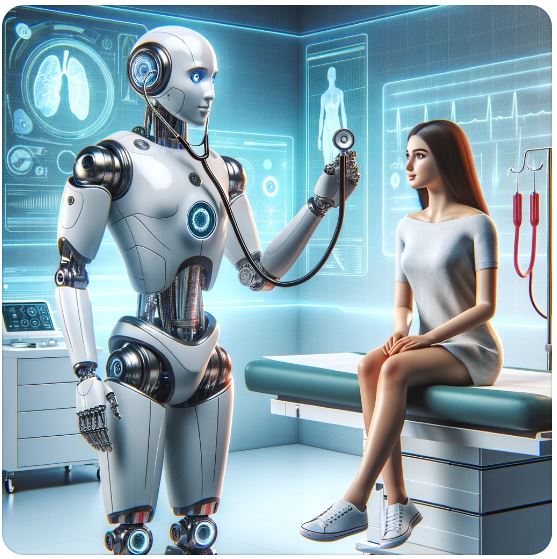
I dare you?
Can AI produce better Doctors and Engineers than Universities
Contributai Learning | May 1st, 2024
Artificial intelligence (AI) has been steadily transforming various industries, and its potential impact on education is vast. Universities like the Massachusetts Institute of Technology (MIT) are known for producing brilliant scientists, engineers, and innovators. With AI increasingly becoming integrated into educational systems, a natural question arises: can AI help create better scientists than prestigious institutions like MIT? Exploring the potential of AI in science education and how it might shape the future workforce reveals both exciting possibilities and challenges.
The Current Role of AI in Education
AI’s influence in education is already significant. Learning platforms powered by machine learning algorithms provide tailored content and personalized instruction. They identify students' strengths and weaknesses, adapting lessons accordingly. Adaptive learning systems like DreamBox and Knewton have demonstrated how individualized learning can enhance students’ comprehension and performance.
In scientific education, AI is proving invaluable. Tools like Labster offer virtual laboratory experiences, allowing students to conduct experiments without the constraints of traditional labs. Similarly, software like Wolfram Alpha can solve complex mathematical problems and assist with theoretical calculations, acting as a helpful companion for students and researchers alike.
Developing a New Generation of Scientists
To consider whether AI can create better scientists than MIT, it’s crucial to define what constitutes a "better" scientist. MIT graduates are known for their innovative thinking, problem-solving skills, and ability to collaborate. These attributes extend beyond technical knowledge to soft skills that are vital in any professional field.
AI systems can improve traditional education by offering:
Personalized Learning Paths: By analyzing a student's learning style and proficiency level, AI can tailor educational experiences, helping students master concepts more effectively.
Access to Global Resources:AI can connect students to a global knowledge base, providing them with the latest research papers, datasets, and experimental results.
Collaboration Opportunities:Online platforms powered by AI enable collaboration between students worldwide, fostering cross-cultural scientific exchange.
Continuous Evaluation and Feedback:Instant feedback provided by AI systems helps learners identify areas that need improvement and offers suggestions for alternative approaches.
Limits of AI in Science EducationDespite its potential, AI faces several challenges in scientific education:
Human Element:Critical thinking, creativity, and social collaboration are challenging for AI to replicate. Education involves nurturing curiosity, empathy, and ethical judgment, which are fundamental traits in any scientist.
Complex Problem-Solving:While AI can help solve standard problems, developing new scientific theories requires intuitive thinking and exploration beyond existing patterns.
Resource Disparities:Access to AI-powered education tools is still limited in developing regions due to infrastructure and economic disparities.
Combining the Best of Both WorldsAI may not independently produce better scientists than MIT, but it can complement
traditional education in a powerful way: Human-AI Collaboration:AI can assist with data analysis, pattern recognition, and hypothesis testing, allowing human researchers to focus on creativity and exploration.
Interdisciplinary Training:AI could facilitate interdisciplinary approaches to learning, breaking down silos and helping students acquire knowledge from multiple scientific fields.
Mentorship and Networking:AI could connect students with mentors worldwide and recommend networking opportunities tailored to their research interests.
A Future of Enhanced Scientific EducationThe future of science education will involve deep collaboration between humans and AI. Universities will continue to play a significant role by providing structured learning environments, real-world exposure through internships and labs, and a vibrant intellectual community. Meanwhile, AI will handle the logistical and repetitive tasks, helping identify knowledge gaps, providing personalized instruction, and freeing up educators to focus on creative and high-level educational experiences.
Conclusion
In the end, it's not about replacing traditional education with AI but combining the strengths of both. MIT will continue to produce excellent scientists, but AI can significantly enhance the journey by personalizing learning and providing advanced resources. The most effective scientists of the future will likely come from a blend of AI and human mentorship, leveraging both to push the boundaries of scientific discovery.